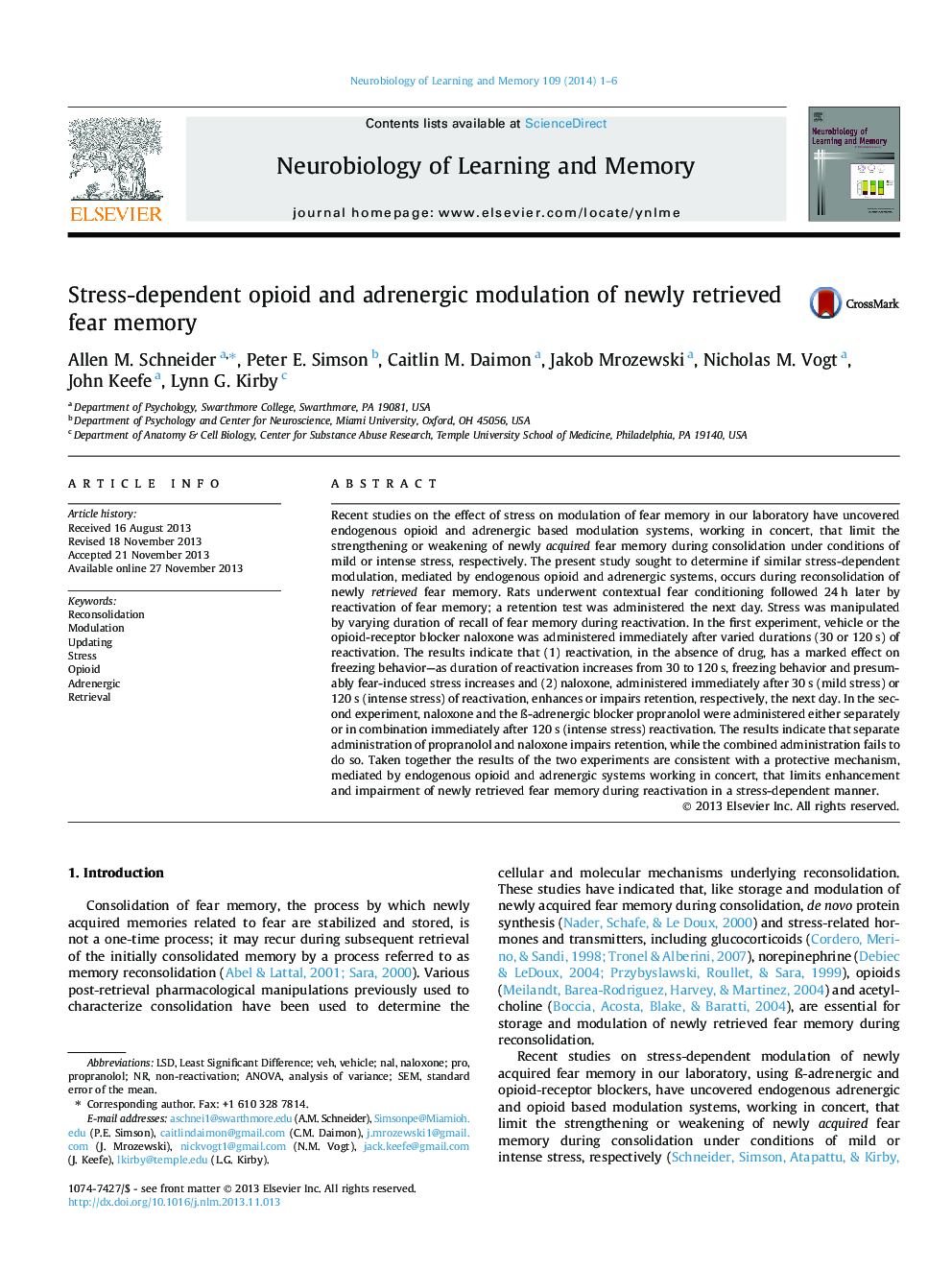| Article ID | Journal | Published Year | Pages | File Type |
|---|---|---|---|---|
| 7300405 | Neurobiology of Learning and Memory | 2014 | 6 Pages |
Abstract
Recent studies on the effect of stress on modulation of fear memory in our laboratory have uncovered endogenous opioid and adrenergic based modulation systems, working in concert, that limit the strengthening or weakening of newly acquired fear memory during consolidation under conditions of mild or intense stress, respectively. The present study sought to determine if similar stress-dependent modulation, mediated by endogenous opioid and adrenergic systems, occurs during reconsolidation of newly retrieved fear memory. Rats underwent contextual fear conditioning followed 24Â h later by reactivation of fear memory; a retention test was administered the next day. Stress was manipulated by varying duration of recall of fear memory during reactivation. In the first experiment, vehicle or the opioid-receptor blocker naloxone was administered immediately after varied durations (30 or 120Â s) of reactivation. The results indicate that (1) reactivation, in the absence of drug, has a marked effect on freezing behavior-as duration of reactivation increases from 30 to 120Â s, freezing behavior and presumably fear-induced stress increases and (2) naloxone, administered immediately after 30Â s (mild stress) or 120Â s (intense stress) of reactivation, enhances or impairs retention, respectively, the next day. In the second experiment, naloxone and the Ã-adrenergic blocker propranolol were administered either separately or in combination immediately after 120Â s (intense stress) reactivation. The results indicate that separate administration of propranolol and naloxone impairs retention, while the combined administration fails to do so. Taken together the results of the two experiments are consistent with a protective mechanism, mediated by endogenous opioid and adrenergic systems working in concert, that limits enhancement and impairment of newly retrieved fear memory during reactivation in a stress-dependent manner.
Keywords
Related Topics
Life Sciences
Neuroscience
Behavioral Neuroscience
Authors
Allen M. Schneider, Peter E. Simson, Caitlin M. Daimon, Jakob Mrozewski, Nicholas M. Vogt, John Keefe, Lynn G. Kirby,
